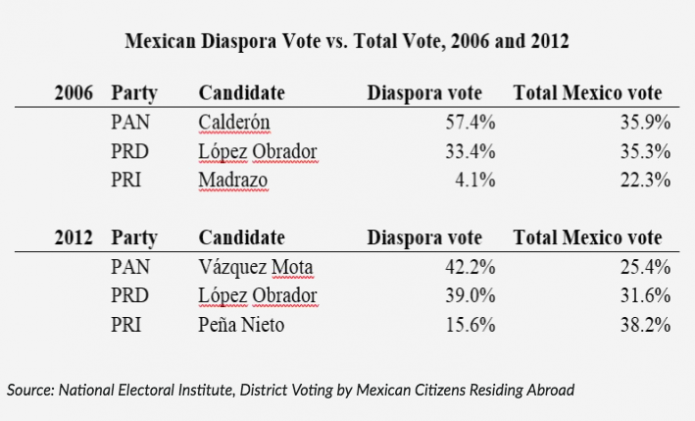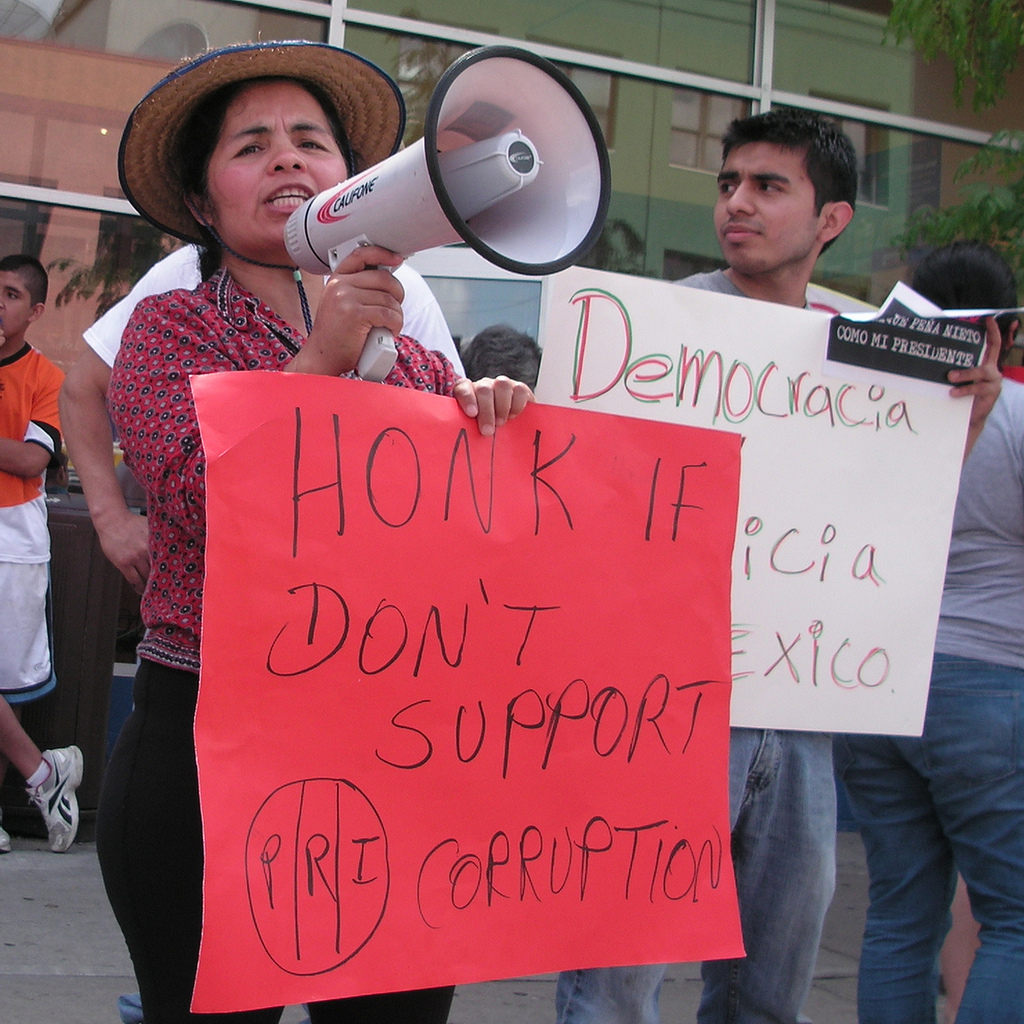
Elections in Mexico can produce perplexing situations: “se cayó el sistema;” “voto por voto, casilla por casilla.” In the Mexican diaspora, elections create paradoxes of their own.
For Mexico’s 2000 elections, then-candidate Vicente Fox visited Mexican immigrant neighborhoods in Los Angeles and Chicago, where he rode a horse through the streets of South Lawndale, better known by its residents as La Villita.[1] Notably, at the time of his visit, Mexican citizens living outside of Mexico did not have the right to vote: Fox had traveled to the U.S. to campaign among an entirely nonvoting constituency.
For the 2018 elections, two of the major presidential candidates, MORENA’s Andrés Manuel López Obrador and PAN’s Ricardo Anaya, have made visits to the U.S. In March, Anaya visited Los Angeles, where he met with business owners and promised the audience to defend DACA recipients, excoriated Trump’s “insults to our community” and assured them the Mexican migrant community is not alone: “We will be with them always.”[2] Last year, López Obrador toured eight U.S. cities including Chicago, where he denounced Trump’s “campaign of hatred against immigrants and against Mexico,” promising to provide lawyers to those facing deportation.[3] Notably, by this time, Mexicans living abroad had gained the right to vote; however it is now illegal for candidates to campaign outside of Mexico. By making these visits before officially inaugurating their campaigns, Anaya and López Obrador were complying with the letter of the law, but not the spirit.
What is going on? Whether voters or not, Mexicans living in the U.S. exert a powerful pull on Mexican politicians: roughly 1 in 10 Mexicans live outside of Mexico, 98% of them in the U.S. And whether legal or not, campaigning in the U.S. has been a staple of Mexican elections for decades, and is unlikely to stop anytime soon.
This tradition not only predates the extension of voting rights to the diaspora, it predates the end of Mexico’s era of one-party rule: in the 1988 elections, Cuauhtémoc Cárdenas, who lost in a suspicious vote count, campaigned in California and Illinois, seeking support for his insurgent candidacy against the then-hegemonic PRI. Both Cárdenas and Fox knew their supporters in the U.S. could not vote for them. Still, during Fox’s horseback ride through Chicago, he passed out phone cards and said something that has been repeated not only by Mexican politicians visiting the U.S. but also those from Guatemala, Haiti, Liberia, and Taiwan, as well as Turkish politicians visiting Germany and Romanian politicians visiting Spain: he told them to call their relatives back home and tell them to vote for him.[4]
…
